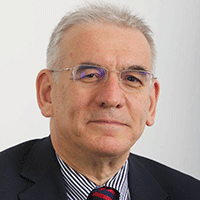
Atilla Incecik
Professor
University of Strathclyde, Glasgow, U.K.
Lecture Title: Scotland & Japan – Education, Research and Industry Collaboration in Naval Architecture and Ocean Engineering
Abstract: This presentation describes the long-standing collaboration between Scotland and Japan in the fields of naval architecture and ocean engineering, a partnership that spans more than a century. Its origins lie in early transfers of shipbuilding knowledge and the establishment of the Imperial College of Engineering—later the Imperial University of Tokyo—and it has since evolved through sustained programmes of student exchange into contemporary collaborative research in advanced marine technologies and renewable energy systems.
Scottish universities, including Strathclyde, Glasgow, and Edinburgh, have hosted Japanese students and scholars, fostering expertise in hydrodynamics, CFD modelling, and offshore engineering. In parallel, Japanese companies—Marubeni, TEPCO Renewable Power, Sumitomo Electric, and Mitsui—have established a strong presence in Scotland’s offshore wind sector, contributing to project development, infrastructure, and supply-chain capabilities. This dual-track collaboration demonstrates a seamless flow from education and research into practical industry application, supporting Scotland’s transition to renewable energy and advancing knowledge in marine and offshore technologies.